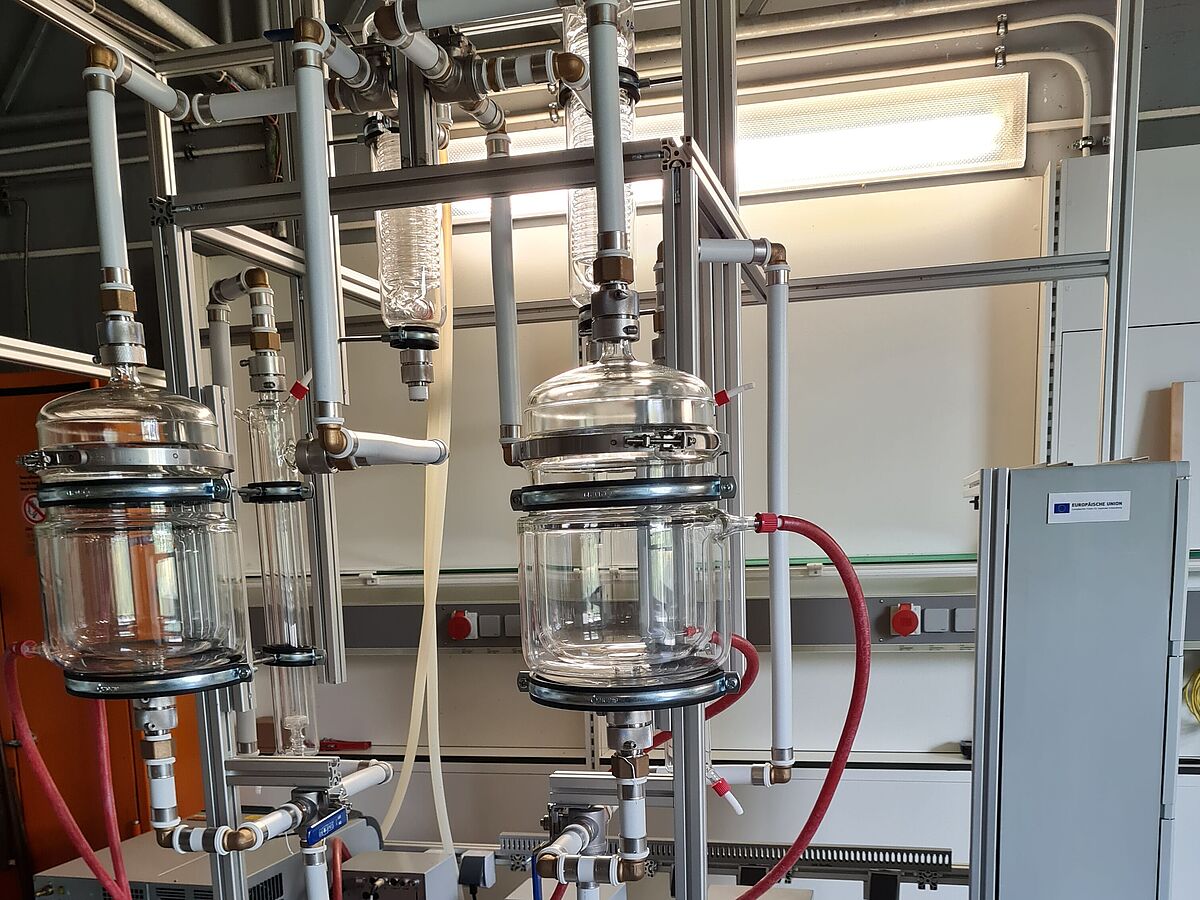In the project "Development of a process for the targeted structural manipulation of essential oils using the hydrolate phase based on the example of the model plant thyme (Thymus vulgaris L.)," a novel method for the extraction of essential oils will be developed based on quality-compliant production according to established pharmacopeia (e.g., Ph. Eur.). The aim is to completely compensate for natural fluctuations in the composition of essential oil caused by climate or soil, for example, by a process that uses aqueous distillate recirculation (hydrolate phase). In this way, in a single process step, the otherwise sometimes considerably quality-reducing effects due to disproportionately occurring undesirable accompanying and leading substances in the essential oil can be completely avoided. Technologically demanding process control, with a decisive effect on the oil composition by mainly influencing the resulting hydrolate but also other relevant process parameters, should lead to the achievement of the overall objective. In this context, the different temperature-dependent solubility of individual substances in the condensed carrier steam medium water must be used as a control parameter for targeted process control and thus for the central effect on the oil composition.
As far as the overall energy balance of production is concerned, the extraction of essential oils by distillation using steam generation and distillate recooling represents an economic challenge for Germany as a location. In the project, the process is therefore to be tested and established through a regenerative energy concept with central thermal plant residue utilisation that is both CO2-neutral and energy and cost-efficient, in order to combine the advantages of economic and ecological operation.

